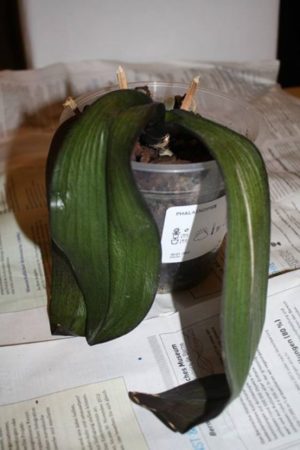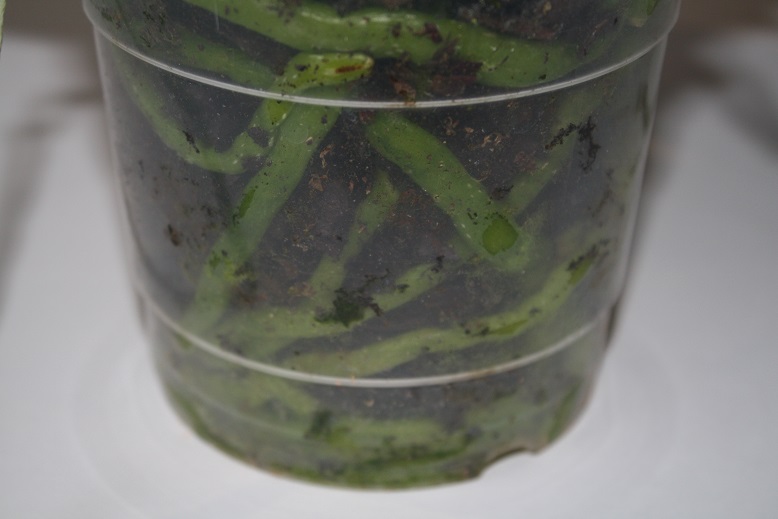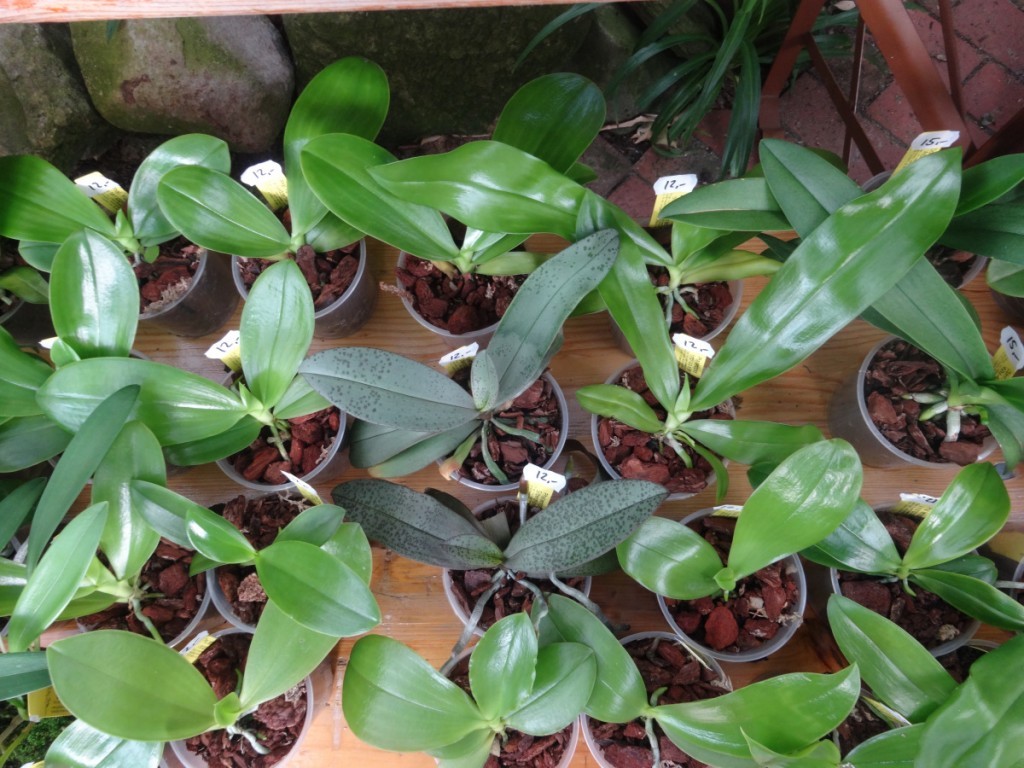A healthy leaf is green and firm. It is usually smooth and often even a little shiny. Already when buying orchids you should pay special attention to the leaves.
If the orchid has limp leaves, they are soft or even leathery and grooved, this is often a sign that something is wrong with the water supply of the plant.
Subscribe to my free newsletter now and let me surprise you. I look forward to seeing you!
Contents
Limp leaves in orchids: Too much or too little water?
Although it may sound strange at first, both too much and too little water can cause droopy leaves on orchids.
If the orchid receives too little water, the roots cannot pass on enough water to the leaves. As a result, the cells in the leaves lose their pressure and become soft. The leaf now hangs limply down the plant and begins to wilt.
The roots also dry out and can then no longer absorb water even if sufficient water is given again – in the worst case, the plant dies. Prematurely falling buds can also be a sign of drought.

If, on the other hand, the orchid gets too much water or the water can not drain from the planter, the roots may rot. Just like withered roots, they can no longer fulfill their function.
No matter how much water you add now, the plant can no longer absorb it through the rotten roots and the leaves show the same symptoms as in dry conditions.
You like my blog and don’t want to miss any more of my posts? Then I would be happy if you subscribe to my posts! Just enter your email address next to or below the post and confirm your subscription. You will then receive an email as soon as a new post goes online!
Measures against limp leaves on orchids
If you discover soft, limp leaves on your Phalaenopsis orchid, you should first check how the roots look. These should be green and firm, just like the leaves. If the orchids are sitting in transparent pots*, it is usually quite easy to see if this is the case.
If some of the roots are brown and squishy, you should unpot the plant, remove the squishy roots, and then place the plant in fresh orchid substrate (affiliate link*).
Otherwise, you run the risk of rot spreading to the roots that are still intact. On the topic of cutting orchid roots, also check out my post Cutting Orchids.

If the roots are light green or almost white or show the first signs of drought, you should bathe the pot in room-warm water for a few minutes until the roots are rich green again.
If the drought has not lasted too long, there is a good chance that the plant will recover and the leaves will also become firm and smooth again.
It can also be helpful to increase the humidity around your orchid. Window sill pots are very suitable for this purpose. In the future you should check more often if the orchid needs water by lifting the pot. If the orchid is very light, it is time for the next watering.
Other causes of limp leaves in orchids
In rarer cases, diseases, pests, etc. can also be a cause. can also be the cause of limp, soft leaves. This must then be assessed on a case-by-case basis and treated accordingly. Mostly, however, cultural errors are the reason.
By the way: If only the lowest or the two lowest leaves of the Phalaenopsis orchid become soft and grooved, this can also be the normal aging process. So no need to worry in this case. The leaves will eventually turn yellow and fall off by themselves.


